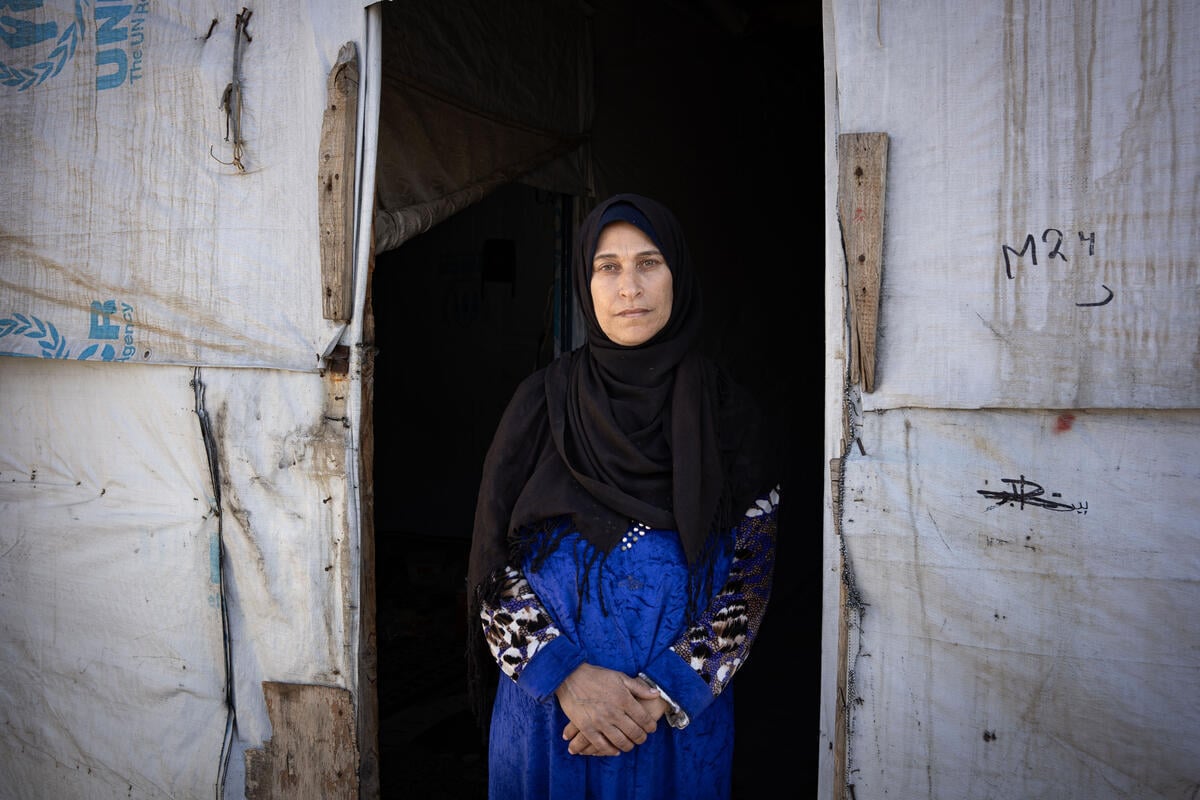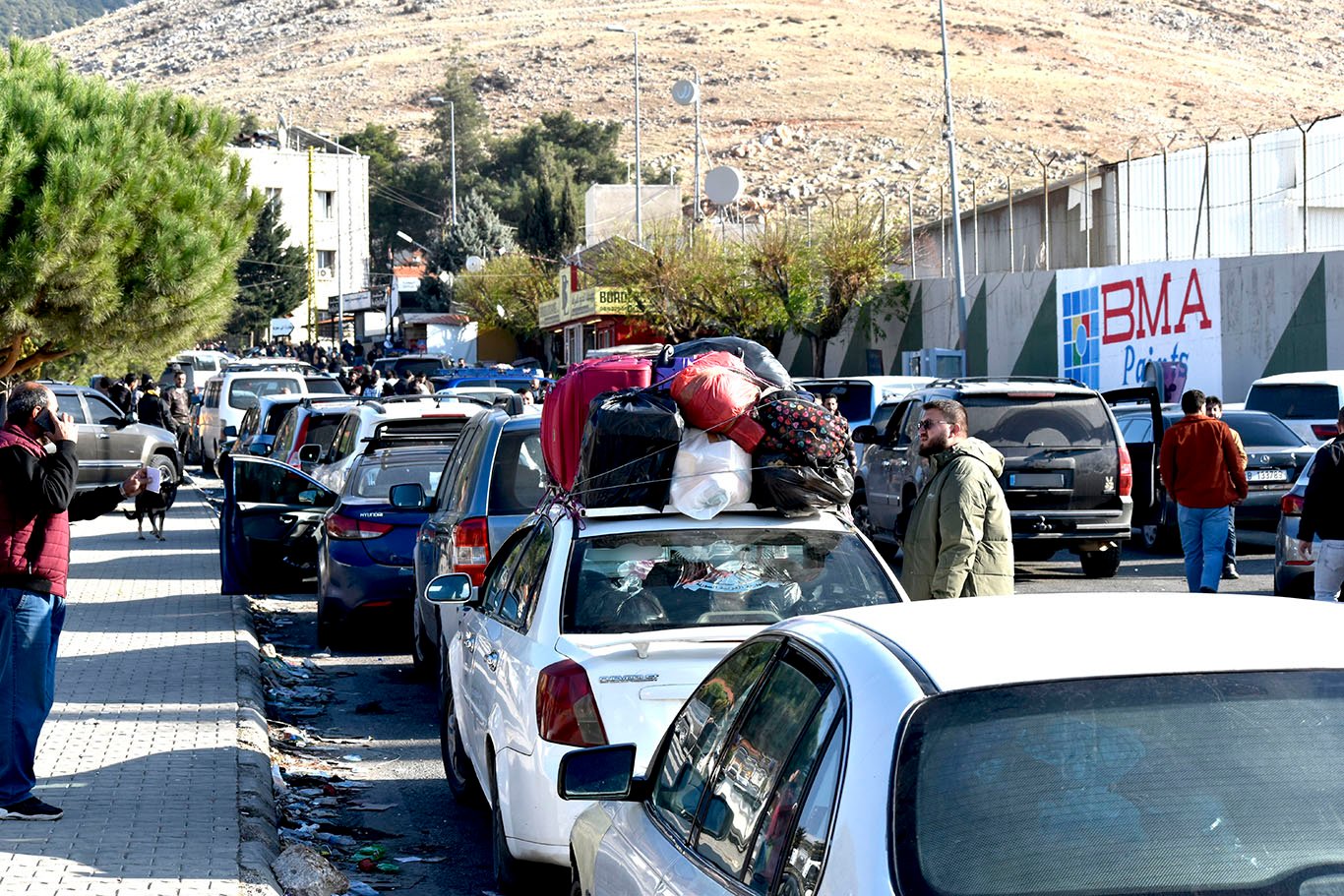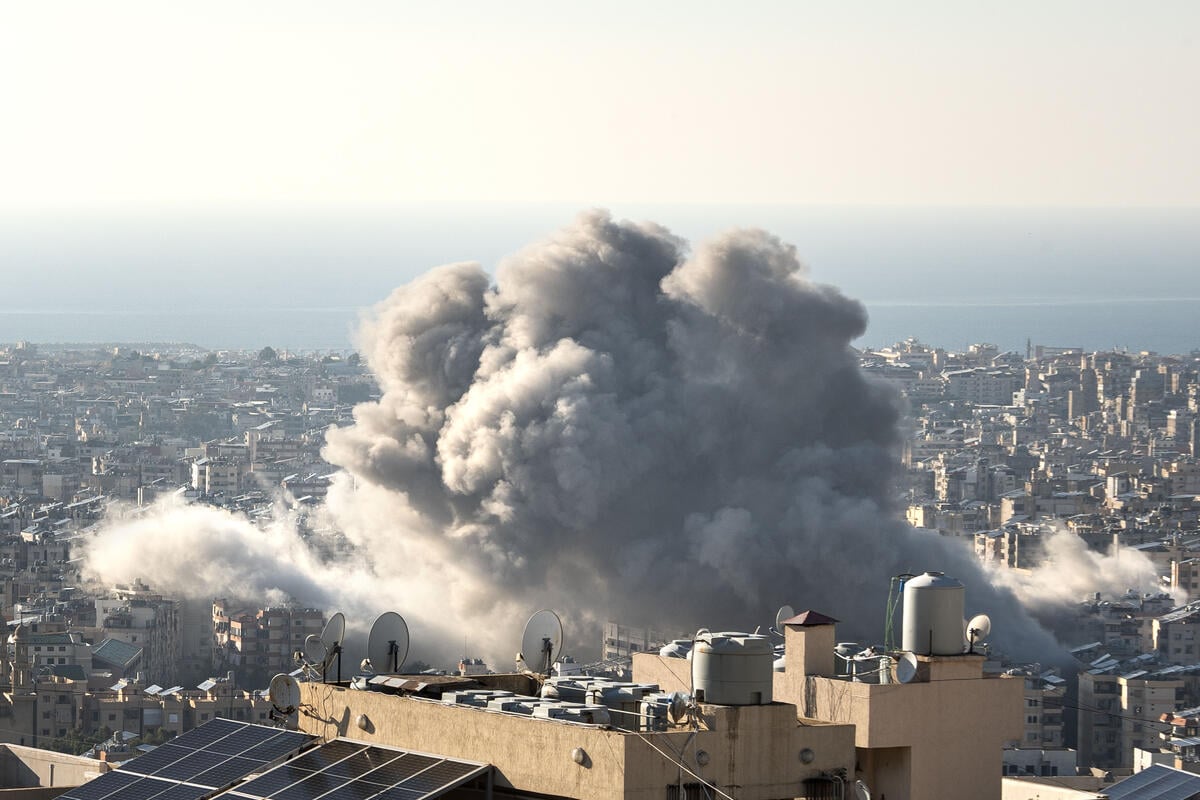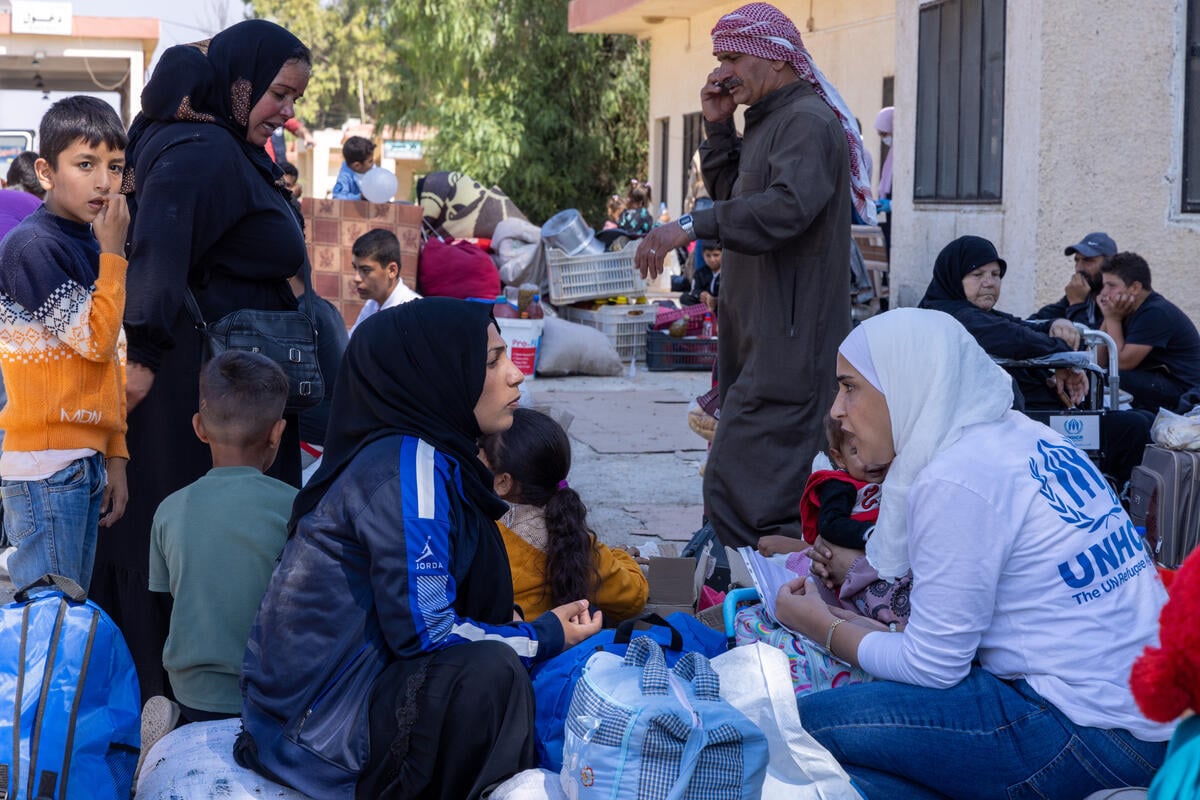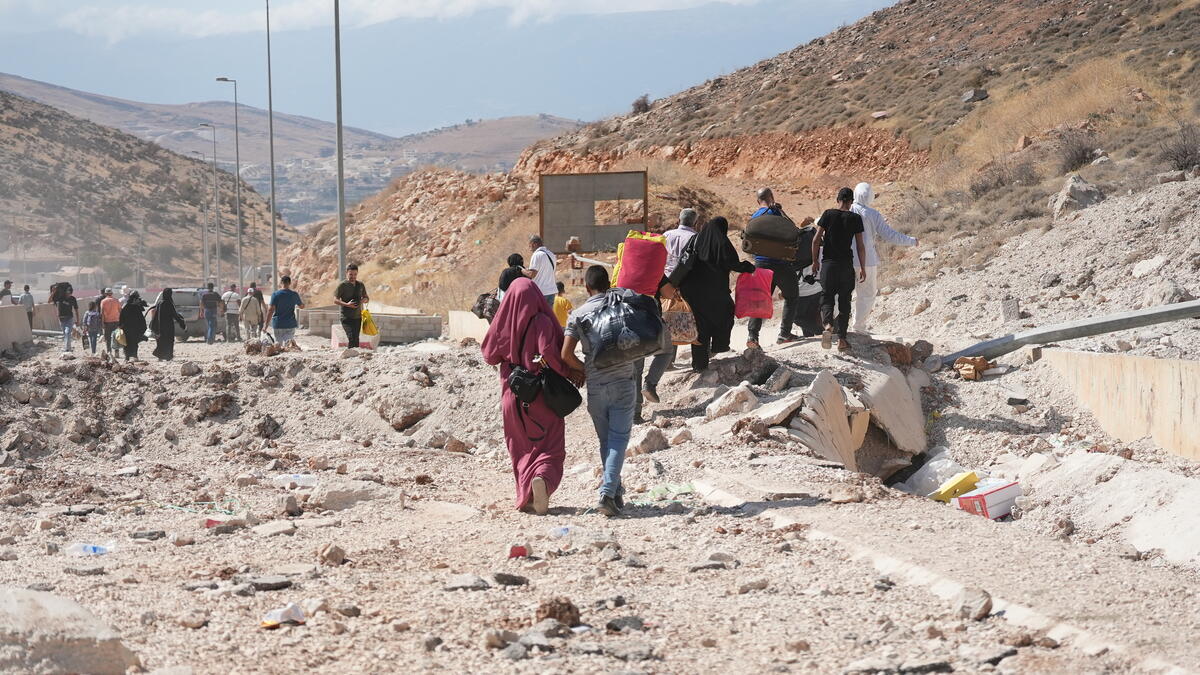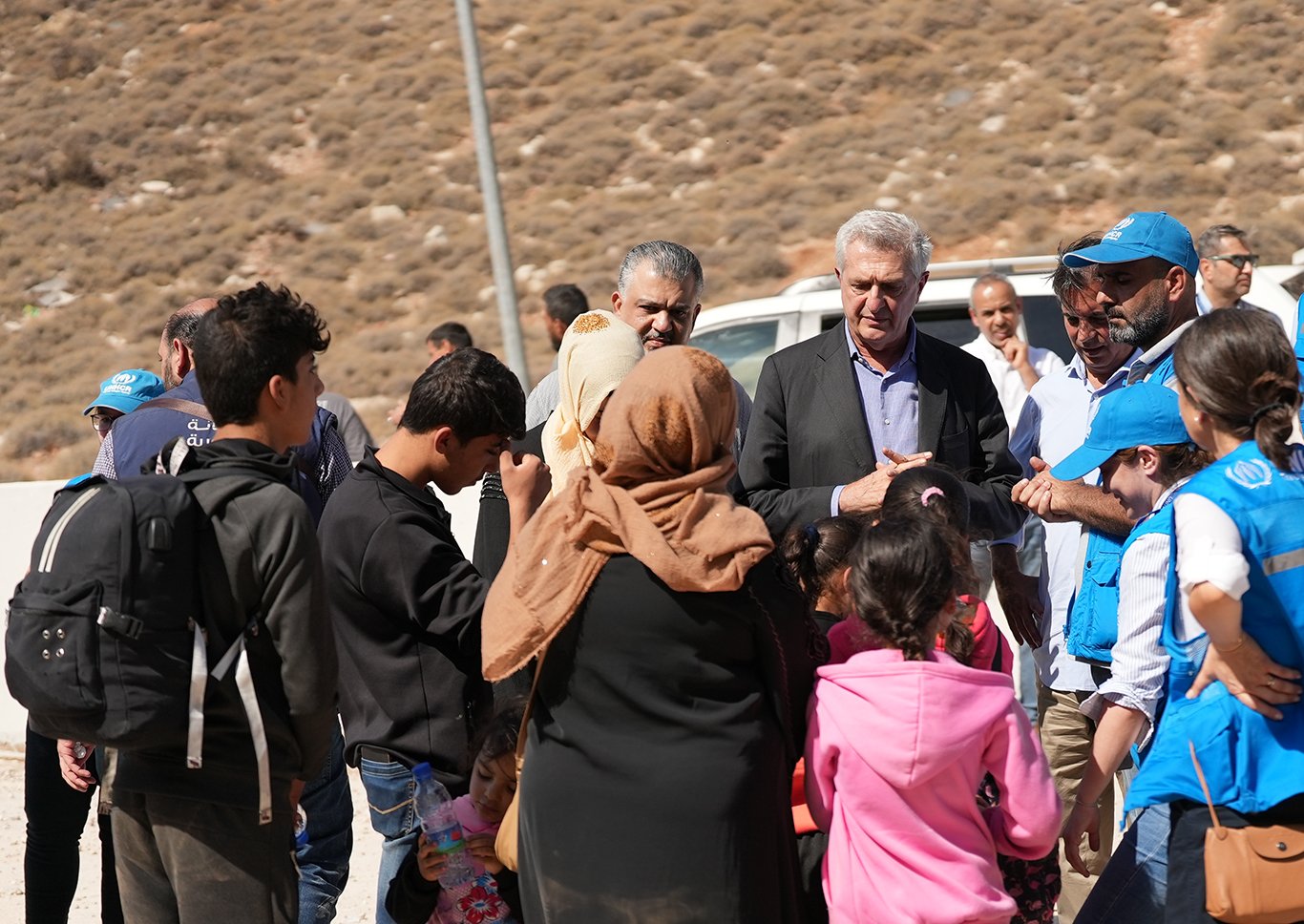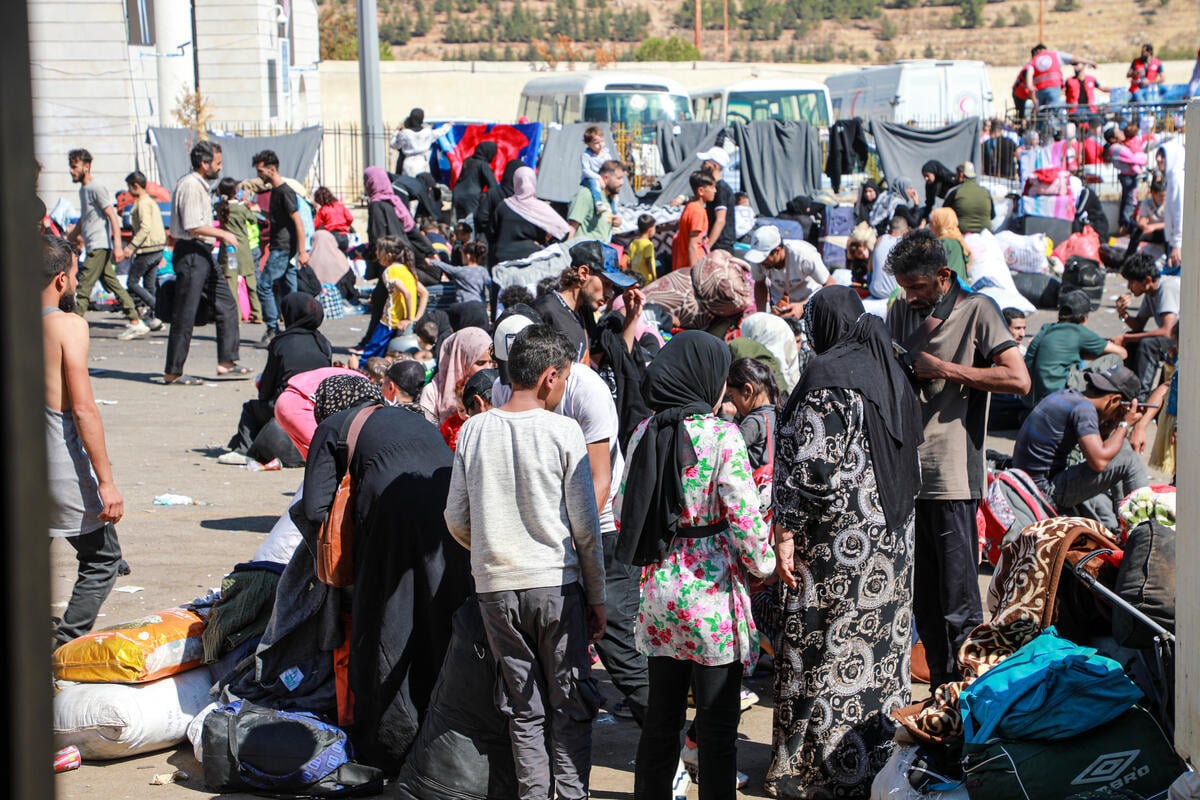Iraqi refugees in Syria reluctant to return to home permanently: survey
Iraqi refugees in Syria reluctant to return to home permanently: survey

GENEVA, October 8 (UNHCR) - A recent UNHCR survey of Iraqi refugees living in Syria has found that most are still reluctant to return home on a permanent basis. The survey was carried out in July and August at the Al Waleed border crossing between Syria and Iraq.
"Of 498 families, representing more than 2,000 individuals, 46 per cent cited political uncertainty, while 15 per cent blamed unstable security conditions. A further 13 per cent said they are holding back because of poor educational opportunities, and six percent cited housing shortages," Melissa Fleming, UNHCR's chief spokesperson, told journalists in Geneva.
"Most people crossing the border - 89 per cent - said it was for a short trip only. In 42 per cent of cases this was for visiting family members, 18 per cent said they were checking conditions on the ground, 15 per cent to obtain documentation and 10 per cent to check on property," she added.
A similar survey on the Iraq-Jordan border among 364 families (about 1,450 people) found that none were returning to Iraq permanently. Similar reasons were cited.
Syria hosts the largest number of Iraqi refugees in the region. Since the start of the war in Iraq, UNHCR has registered more than 290,000 Iraqis. Some have since been resettled or departed to third countries on their own; some have returned to Iraq, most of them spontaneously and a few with limited assistance from UNHCR. Most, however, remain in Syria. At the end of August, the number of Iraqi refugees registered with UNHCR stood at slightly more than 150,000.
"Demand for registration by Iraqi refugees in Syria has increased during the past five months, with an average of 1,900 people requesting registration appointments every month since the beginning of the year," Fleming said. "Since May, this figure has risen dramatically to a peak of 3,500 in August. The majority of Iraqis requesting registration came from Baghdad and Ninewa governorates, recognized as being particularly dangerous in UNHCR guidelines," she added.
Syria has been a generous host to Iraqi refugees. More than 70 percent of the Iraqi refugees currently registered in Syria have lived there for over four years. Although many Iraqi refugees left Iraq with some savings, after years of exile, these savings have run out. As a result, refugees rely on food and financial assistance from UNHCR.
Approximately 40 per cent of all registered Iraqis in Syria are considered vulnerable and in need of assistance. About 34,000 suffer serious medical conditions, while 9 per cent of the refugee population are classified as "women at risk."
"UNHCR does not consider the security situation in Iraq adequate to facilitate or promote returns. We nonetheless continue to assist refugees who voluntarily express their wish to return, in close coordination with the Iraqi authorities," Fleming noted.
The number of refugees who return permanently to Iraq has been very low, with UNHCR having supported 163 to return to Iraq from Syria since the beginning of 2010. According to Iraqi government statistics, only 18,240 Iraqi refugees returned from exile between January and August. This represents 20 per cent of the total returns of 89,700 in the same period, including internally displaced people.


